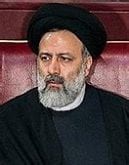Al-Monitor – “Universities should be a venue for dialogue. As student representatives, we are walking out of this venue in protest,” a union leader declared loudly, interrupting a speech by Iranian President Hassan Rouhani during an Oct. 16 ceremony that marked a belated commencement of the academic year at the University of Tehran — the country’s largest higher education center.
The union leaders were infuriated by what they found as a “selective” process allowing only a handpicked number of students to speak at the podium. They decried the “show” and “an atmosphere of flattery” staged by Rouhani subordinates at a venue where many seats remained vacant.
“You have only one year left to your presidency and still want to maintain this policy of censorship and selectiveness?” one student asked Rouhani on Twitter as videos of the disrupted speech went viral. Others highlighted the ordeal of several fellow student activists, who are either serving hefty jail terms or facing bans, among them Soha Mortezaee, who has been staging a sit-in at Tehran University to draw attention to her case. Despite passing entry exams that would get her into a Ph.D. program in political science, she is facing an official ban due to political activities and an imprisonment record.
It was not clear what the protesting students would have told Rouhani if given the podium. But at small protests outside, some were holding different signs. “You can’t solve problems by stifling dissent,” one placard read.ALSO READSYRIA CONFLICTHow far will Egypt go to defend Syria?
Iran’s conservative camp and even many of Rouhani’s Reformist supporters have expressed disillusionment at his government’s overall economic performance in recent months. Beyond that, rampant corruption involving the country’s top political elite has added insult to the injuries of the middle class. As Rouhani was delivering his speech, reports came out that his brother, Hossein Fereydoun, officially started serving his five-year sentence over a multimillion-dollar “bribery” case — a verdict from a judiciary dominated by Rouhani’s die-hard opponents.
The disruption at the ceremony did not, however, stop Rouhani from taking aim at the camp that has opposed his outreach to the West, and the 2015 nuclear deal, which he said dropped “a bombshell” over the heads of some critics.
And the controversial speech did not end there. Rouhani once again raised the possibility of holding referendums, an idea largely opposed by the ultraconservatives. “There are strategic issues we can put to the public vote,” he said at the commencement ceremony. “We can’t afford to fight over them. We have been arguing for more than 40 years.”
Under Article 59 of the Iranian Constitution, the government is authorized to “turn to the public vote to decide on important economic, political, social and cultural matters.” The law, nevertheless, requires a minimum two-thirds majority approval from parliament and a directive by the supreme leader, who holds the final say on all state matters.
In his off-again, on-again adherence to the idea of referendums, Rouhani has remained vague on what he seeks to be decided. Speculation has been rife that one controversy he wants settled is the issue of direct negotiations with the United States.
In an article published immediately after Rouhani’s latest speech, the hard-line Mashregh News Agency argued that the frequent references to referendums only “polarizes” the political elite. Some Rouhani opponents also contend that he is taking advantage of the constitutional right as a pressure tool against his opponents whenever he faces crises in his presidency. Picking up on that argument, conservative columnist Mohammad Mehdi Hojjati suggested in June that Rouhani should put his own performance to a public vote and see if Iranians still even want him in office.
 Shabtabnews In this dark night, I have lost my way – Arise from a corner, oh you the star of guidance.
Shabtabnews In this dark night, I have lost my way – Arise from a corner, oh you the star of guidance.


